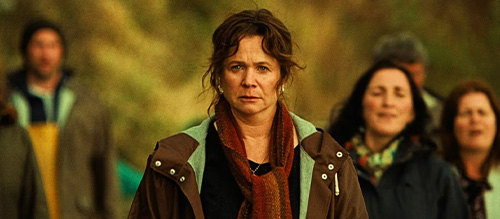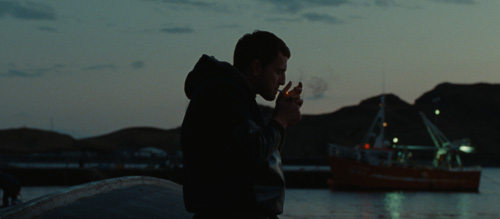God’s Creatures (2022) GFF Review

God’s Creatures (2022)
Directors: Saela Davis, Anna Rose Holmer
Screenwriter: Shane Crowley
Starring: Emily Watson, Paul Mescal, Aisling Franciosi
If you’ve been paying attention recently, you might have noted the exceptional film and television work making its way out of the Republic of Ireland. From Oscar nominations for Irish favourites Kerry Condon and Paul Mescal to the major acclaim surrounding the likes of ‘Normal People’ and The Banshees of Inisherin, the output from the country has been nothing short of astounding as of late, both in numbers and in quality. With the support of A24, BBC Films and Screen Ireland, God’s Creatures mostly lives up to such lofty expectations.
Saela Davis and Anna Rose Holmer’s film follows Aileen (Emily Watson), a supervisor at an oyster harvesting factory in a small Irish village, whose world is disrupted by the unannounced return of her son Brian (Paul Mescal), a charming but mysterious young man whose return brings with it more questions than answers. When Aileen’s love for her son leads to her telling a lie on his behalf, it threatens to rip apart the entire community.
God’s Creatures opens with frantic cuts of rushing water and bubbles accompanied by the horrifying sounds of someone drowning, quite literally dropping the audience into the deep end with a lack of context. Soon after, it is revealed that a local fisherman had drowned and though the details of his drowning remain vague it is implied that he met his death thanks to the superstition within the town that fishermen knowing how to swim is bad luck. It sets the tone for the entire film immediately. The outdated ideals of the village threaten to both literally and figuratively drown its inhabitants.
The windswept Irish fishing village that the story finds its setting in is the perfect location to tell this story. It is the type of place that is hard to come by nowadays, a place long left behind by the world of social media and smartphones, a place inhabited by more ghosts than people and where the townspeople would do anything to protect their own secrets; a place where the rot of the wooden boats and the weathered down stone tells the stories of all who live there.
The theme of outdated ideals is presented through both generational trauma as well as the several dividing lines illustrated throughout the film. Not only is the domestic abuse at the hands of fathers and husbands hinted at, but so is the separation of men and women throughout the entire village; men fish and women work at the processing plant, men drink together and women smoke together. Director of Photography Chayse Irvin (Blonde; BlackKklansman) makes pleasant use of this, creating some wonderful shots of the subtle divide that is built into the community.
Directors Saela Davis and Anna Rose Holmer deliver this all through an intentionally slow pace, one that takes us gently from one scene to another. Whilst it can occasionally feel as though the directors spend a little too long building their world and not enough time finessing other areas, there are brilliant moments of tension drawn out to boiling point, and the directorial duo truly make you feel the weight of almost everything that is happening.

The cast truly elevates the material. Paul Mescal brings a deadly charm to his character, though it must be said that he isn’t given anywhere near enough to work with to give the kind of performance we know he can. Emily Watson, on the other hand, is exceptional; she brings an emotional weight to her performance that appropriately anchors the film. Throughout a presentation in which the women of the village must simply fade into the background behind the men, Watson stands out as a powerful force to be reckoned with.
The standout performance comes from Aisling Franciosi in the role of Sarah, arguably the emotional core of the film. Though Franciosi’s character is unable to truly shine until the latter half of the film, she delivers a wonderfully patient performance, packing a punch whilst seemingly doing so little. Franciosi is a natural performer if ever there was one.
Although God’s Creatures has a good launch, it doesn’t quite stick the landing. Cracks begin to appear as Brian is proven to be less involved than first expected, as well as the directors’ issues with prolonging some elements and not others. The key issue comes in the film’s climax. Instead of a ferocious ending, God’s Creatures delivers more of a gentle culmination. Sadly, it seems to be the case that the ending the directors have chosen is underdeveloped, rather than thought-provoking, leaving what could be a powerful moment feeling lacklustre.
God’s Creatures is an impressive first feature for the two directors as a duo, both of whom craft a beautifully shot film that is rich with subtext and brilliant performances. Though the film doesn’t quite pack the final punch that it could have, it is exciting to see the excellent work that Davis and Holmer can create together. It is with this thought that one can’t help but to feel excited for the future of this new directorial partnership.
Score: 16/24

